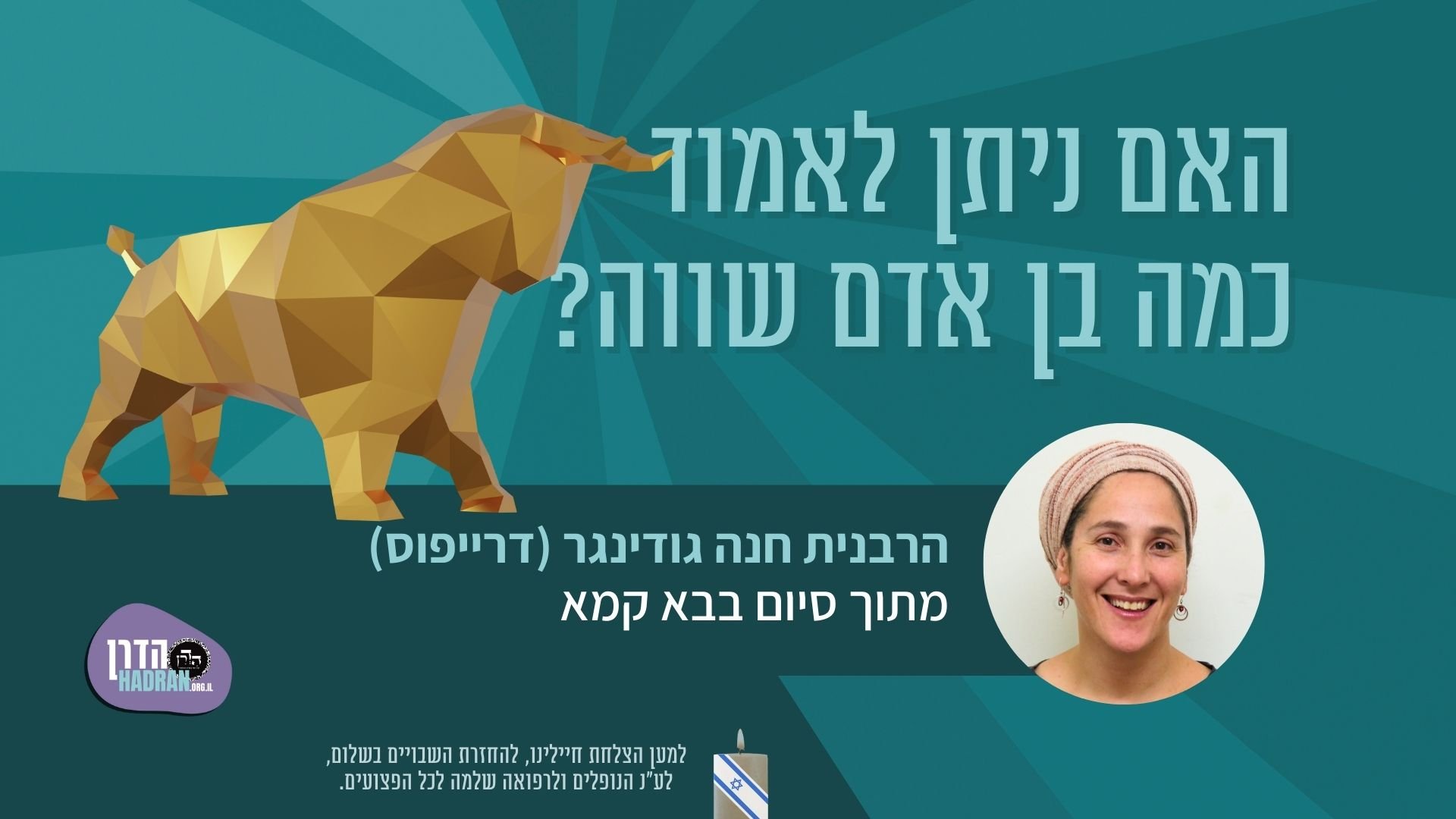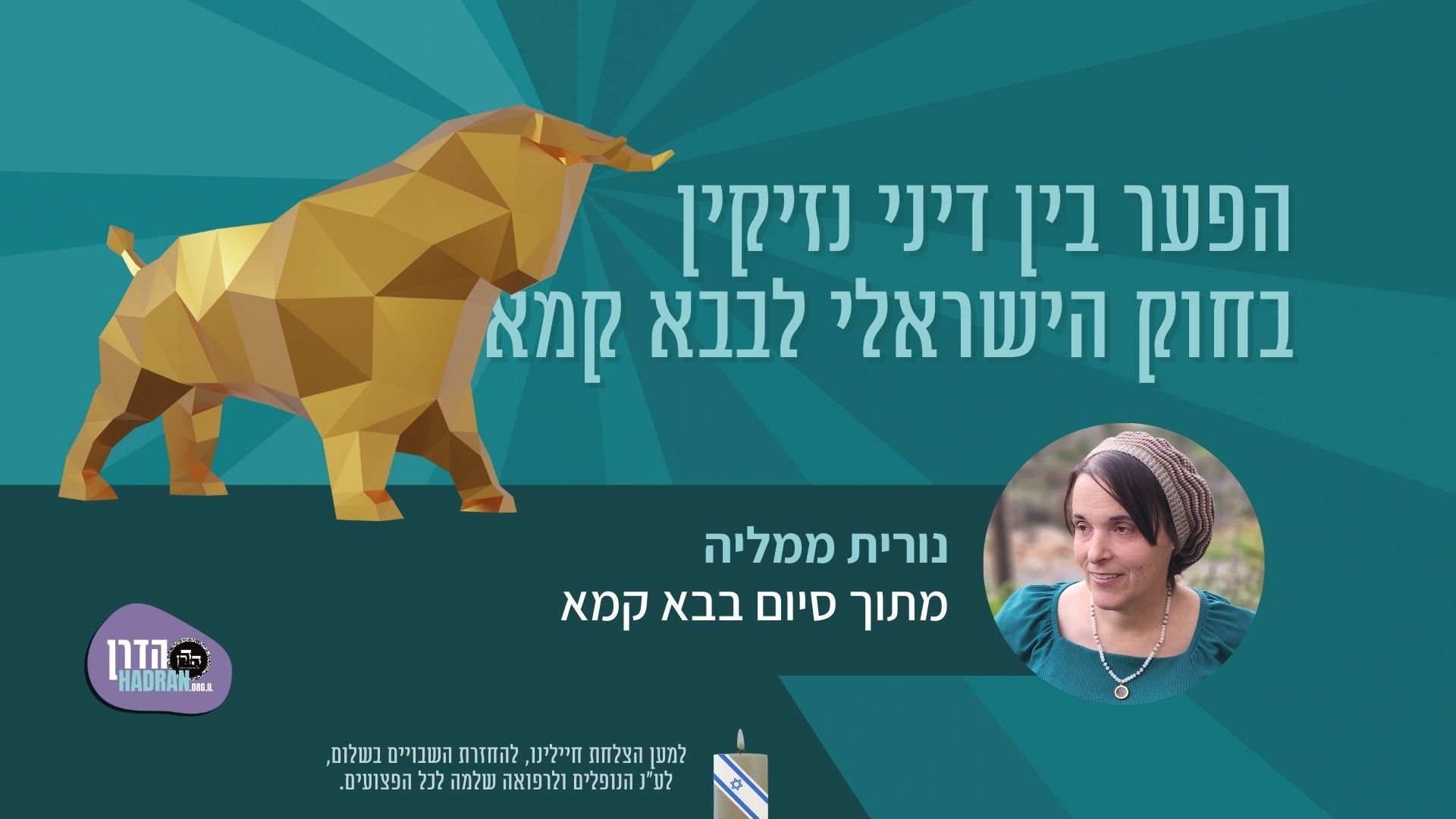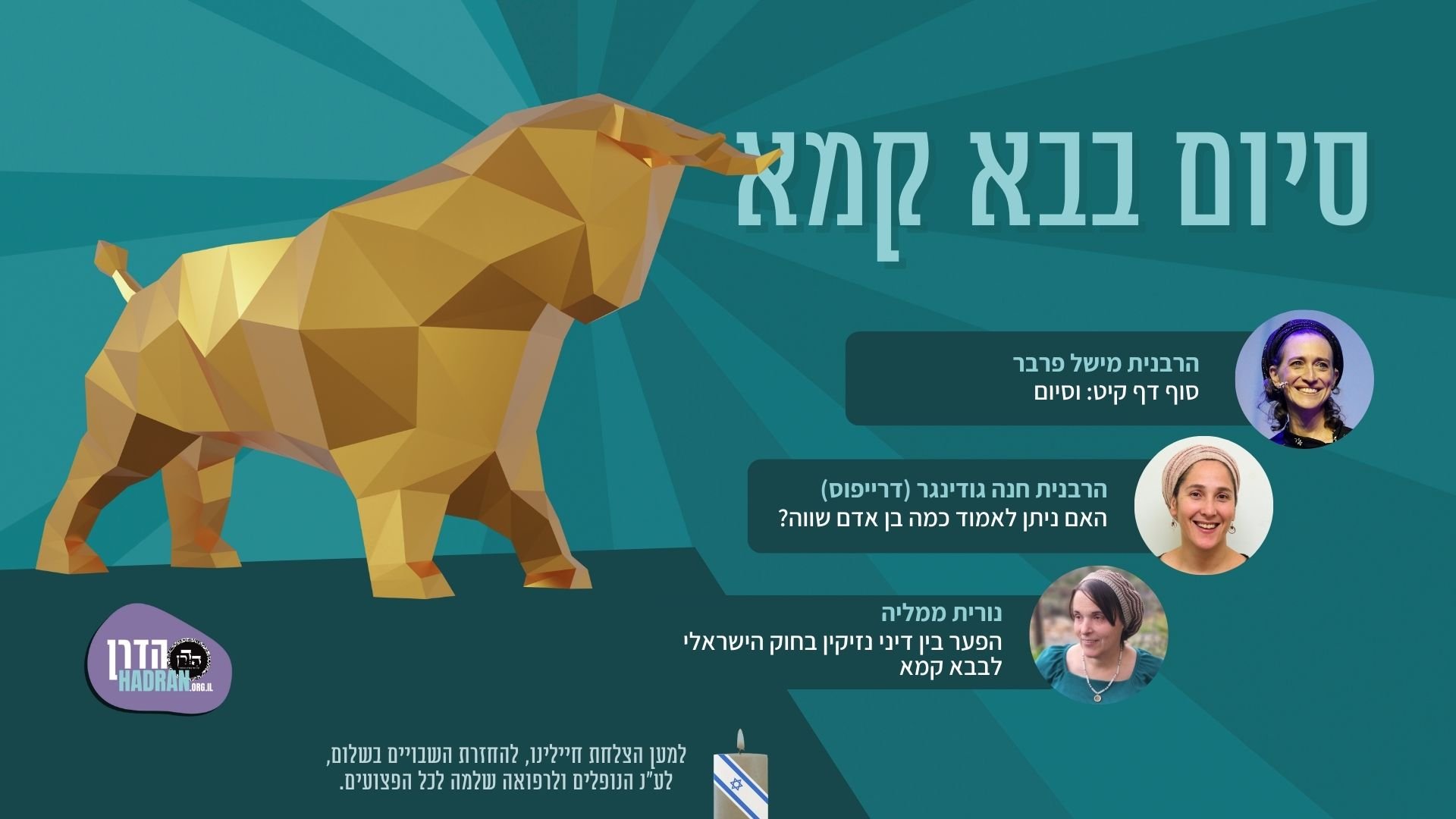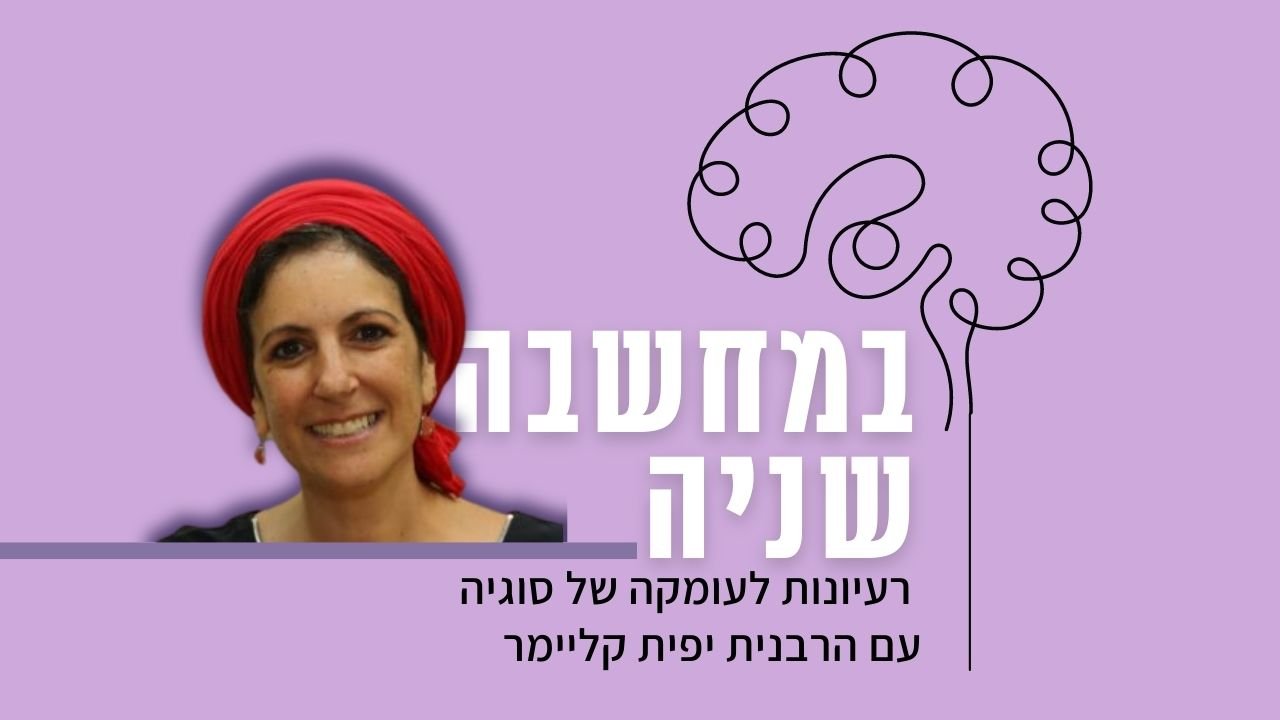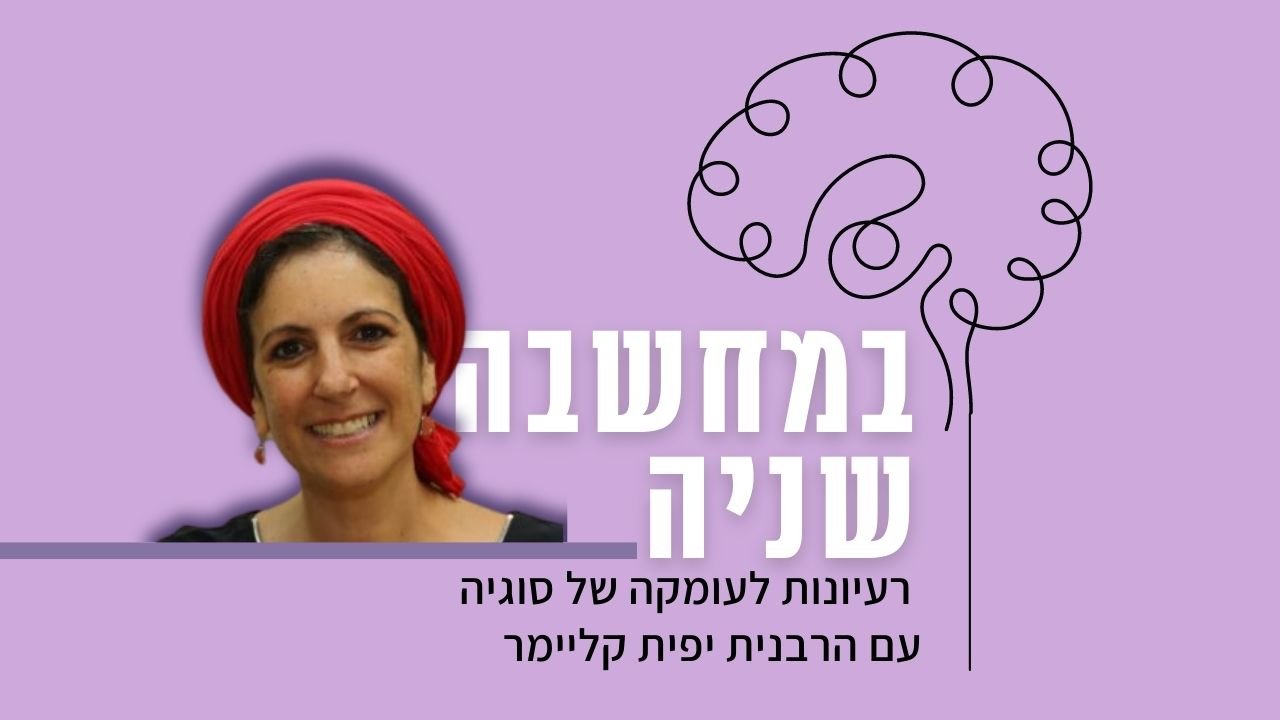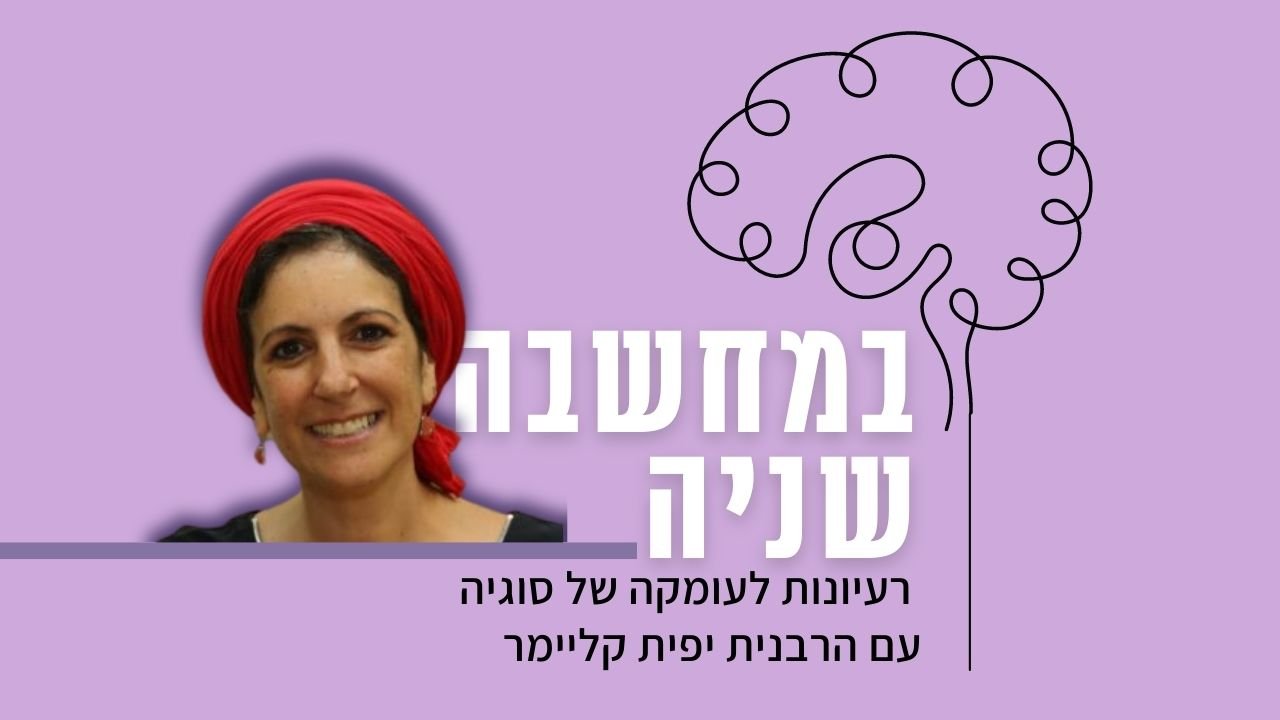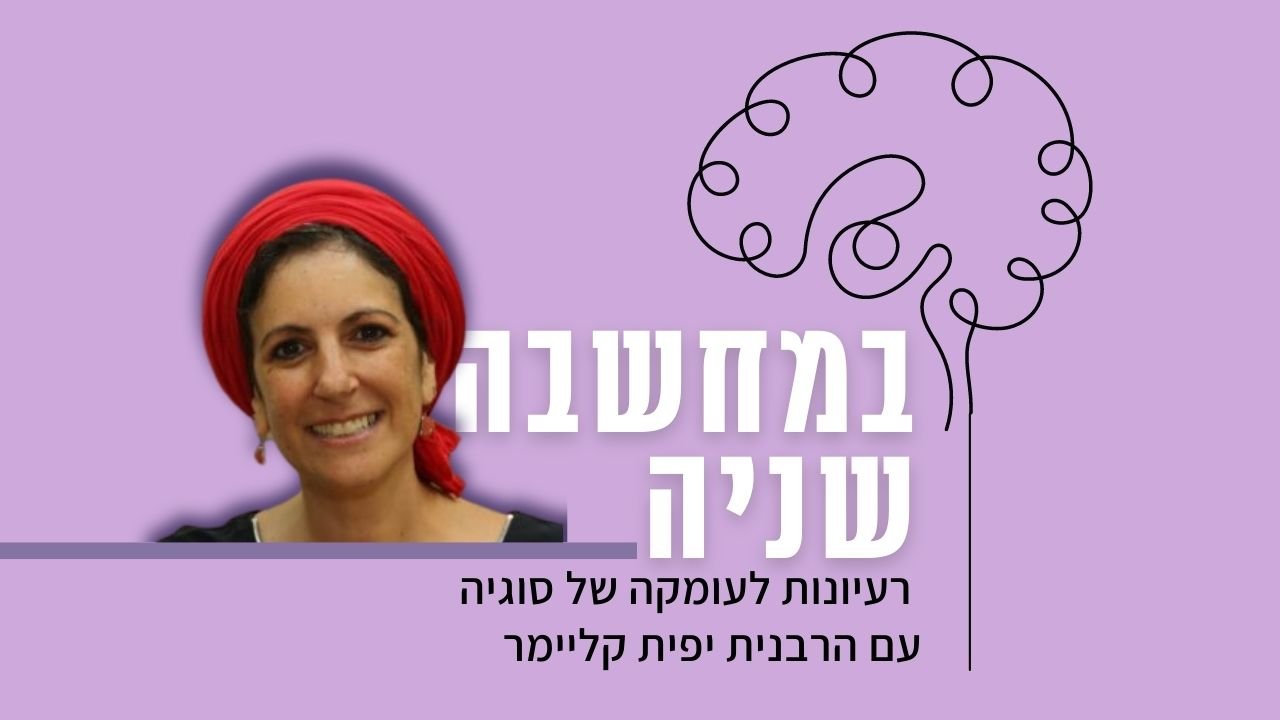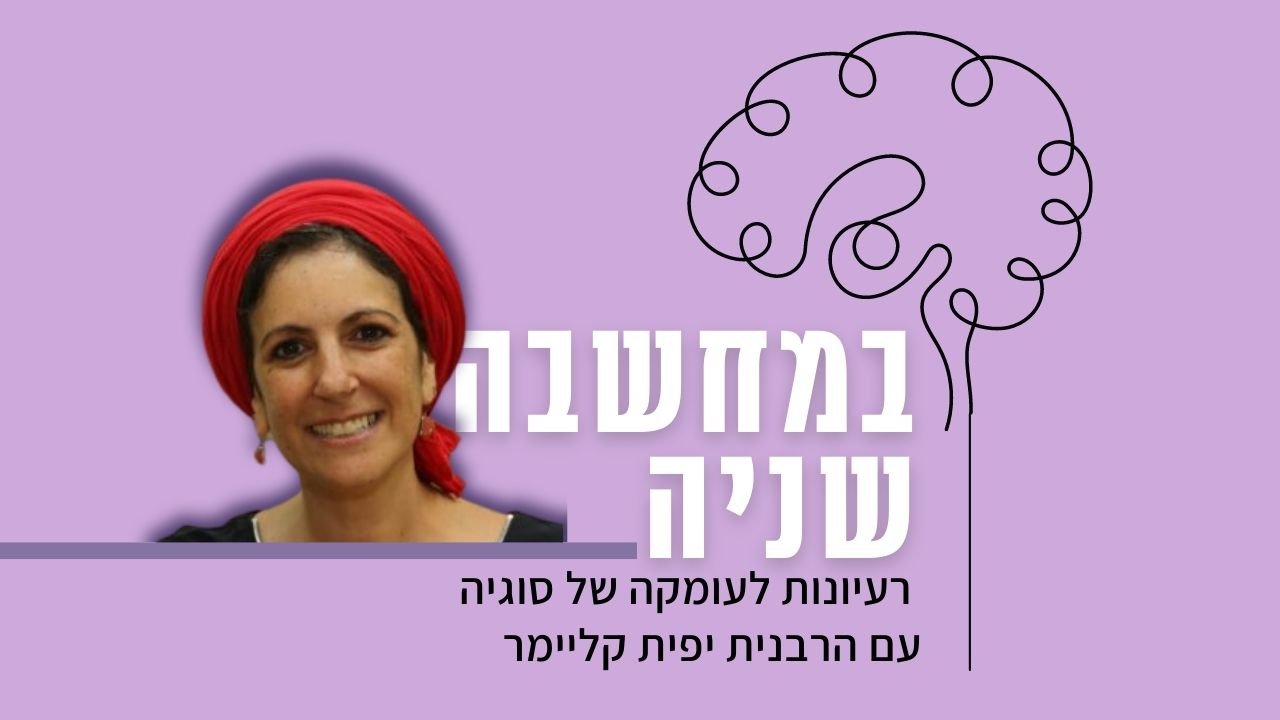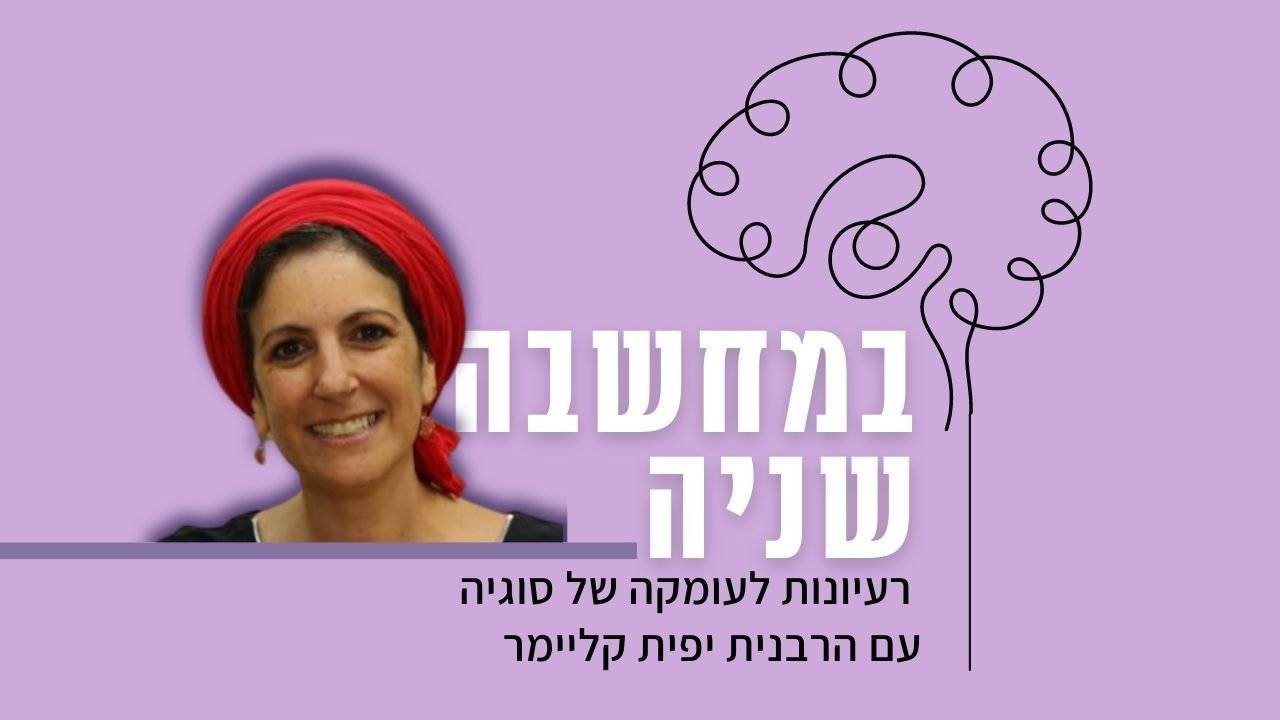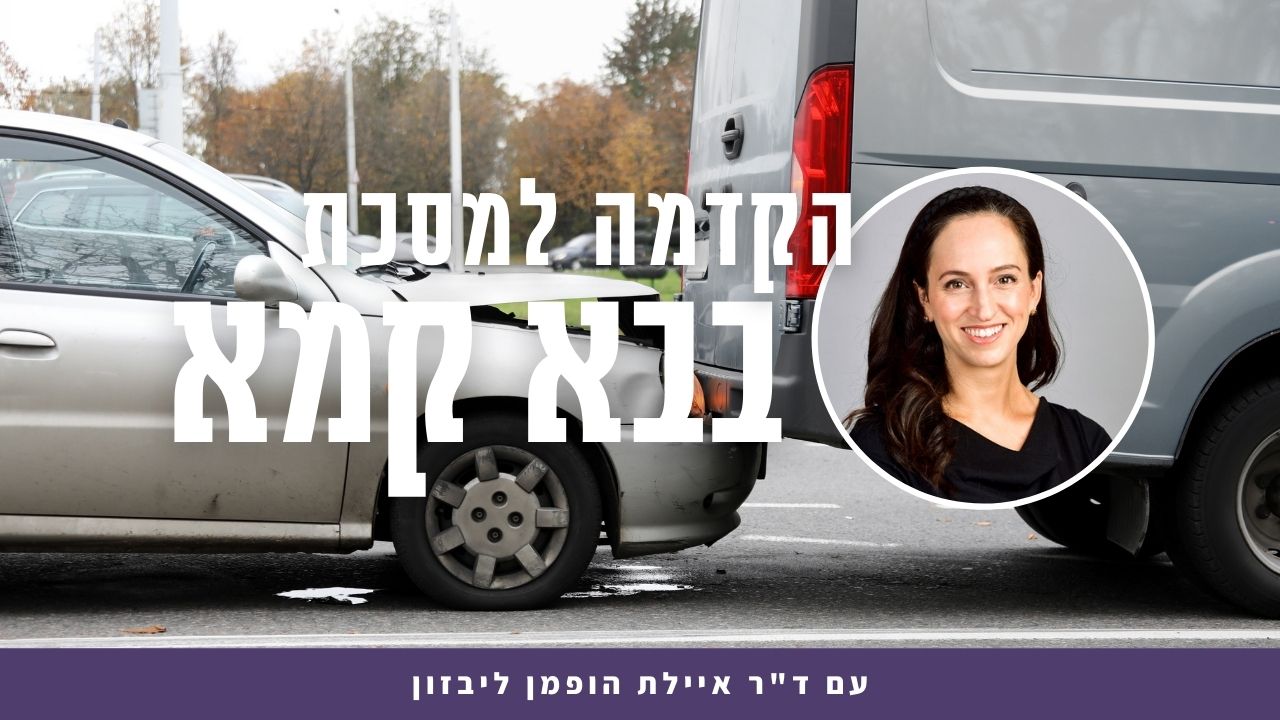בבא קמא כט
פָּטוּר מִדִּינֵי אָדָם, וְחַיָּיב בְּדִינֵי שָׁמַיִם.
he is exempt according to human laws but liable according to the laws of Heaven.
וּמוֹדִים חֲכָמִים לְרַבִּי מֵאִיר, בְּאַבְנוֹ סַכִּינוֹ וּמַשָּׂאוֹ שֶׁהִנִּיחָן בְּרֹאשׁ גַּגּוֹ, וְנָפְלוּ בְּרוּחַ מְצוּיָה וְהִזִּיקוּ – שֶׁהוּא חַיָּיב. וּמוֹדֶה רַבִּי מֵאִיר לְרַבָּנַן, בְּמַעֲלֵה קַנְקַנִּין עַל הַגָּג עַל מְנָת לְנַגְּבָן, וְנָפְלוּ בְּרוּחַ שֶׁאֵינָהּ מְצוּיָה וְהִזִּיקוּ – שֶׁהוּא פָּטוּר.
The Gemara comments: And the Rabbis concede to the opinion of Rabbi Meir in the cases of one’s stone, one’s knife, or one’s load, that if he placed them on top of his roof and they fell as a result of being blown off by a typical wind, i.e., one of ordinary force, and they caused damage, that he is liable. And Rabbi Meir concedes to the opinion of the Rabbis in the case of one who puts pitchers [kankanin] on the roof in order to dry them, and they fell as a result of being blown off by an atypical wind, i.e., one of unusual force, and they caused damage, that he is exempt. Evidently, even Rabbi Meir concedes that if one’s property causes damage due to circumstances completely beyond his control, he is exempt.
אֶלָּא אָמַר אַבָּיֵי: בְּתַרְתֵּי פְּלִיגִי; פְּלִיגִי בִּשְׁעַת נְפִילָה, וּפְלִיגִי לְאַחַר נְפִילָה.
Accordingly, Abaye rejects Rabba’s explanation of Rabbi Yehuda’s statement, that he deems the owner of the jug liable even if he merely attempted to take it off his shoulder and it broke, and offers another explanation. Rather, Abaye said that Rabbi Meir and Rabbi Yehuda disagree with regard to two different situations. They disagree with regard to a situation where the damage was caused at the time of the person’s fall, and they disagree with regard to a situation where the damage was caused after the person’s fall.
פְּלִיגִי בִּשְׁעַת נְפִילָה – בְּנִתְקָל פּוֹשֵׁעַ. מָר סָבַר: נִתְקָל פּוֹשֵׁעַ הוּא, וּמָר סָבַר: נִתְקַל לָאו פּוֹשֵׁעַ הוּא.
They disagree in a situation where the damage was caused at the time of the person’s fall, with regard to whether or not one who stumbles, thereby causing his jug to break, is considered negligent. One Sage, Rabbi Meir, holds that one who stumbles is considered negligent, as his carelessness caused him to stumble. Therefore, he is liable to pay for damage caused by the shards of the jug, which broke as result of his stumbling. And one Sage, Rabbi Yehuda, holds that one who stumbles is not considered negligent.
פְּלִיגִי לְאַחַר נְפִילָה – בְּמַפְקִיר נְזָקָיו; מָר סָבַר: מַפְקִיר נְזָקָיו חַיָּיב, וּמָר סָבַר: פָּטוּר.
They disagree in a situation where the damage was caused after the person’s fall, with regard to one who renounces ownership of his hazardous property. Presumably, the owner of the jug has no interest in keeping the shards, and it is considered as though he renounced his ownership of them. One Sage, Rabbi Meir, holds that one who renounces ownership of his hazardous property is liable to pay restitution for damage caused by it, despite the fact that it no longer belongs to him. And one Sage, Rabbi Yehuda, holds that he is exempt from paying restitution, as it does not belong to him anymore.
וּמִמַּאי? מִדְּקָתָנֵי תַּרְתֵּי: הוּחְלַק אֶחָד בַּמַּיִם, אוֹ שֶׁלָּקָה בַּחַרְסִית. הַיְינוּ הָךְ! אֶלָּא לָאו הָכִי קָאָמַר – הוּחְלַק אֶחָד בַּמַּיִם בִּשְׁעַת נְפִילָה, אוֹ שֶׁלָּקָה בַּחַרְסִית לְאַחַר נְפִילָה.
And from where is this interpretation derived? It is derived from the fact that the mishna teaches two possible cases of damage, stating: Another person slipped in the water or was injured by the shards. This case, slipping in the water, is seemingly identical to that case, injured by the shards. Rather, is it not necessary to explain that this is what the mishna is saying: Another person slipped in the water at the time of the person’s fall, or was injured by the shards after the person’s fall?
וּמִדְּמַתְנִיתִין בְּתַרְתֵּי, בָּרַיְיתָא נָמֵי בְּתַרְתֵּי.
The Gemara infers: And since the dispute in the mishna is with regard to two situations, the dispute in the baraita between Rabbi Meir and the Rabbis must also relate to two situations, as there too, two cases are mentioned, a case where one’s jug broke and a case where one’s camel fell. Apparently, the dispute is with regard to damage caused both at the time of the fall and after the fall. Rabbi Meir holds that one who stumbles and breaks his jug, causing damage to others, is considered negligent and that one who renounces ownership of his hazardous property is liable, and the Rabbis disagree with regard to both issues.
בִּשְׁלָמָא כַּדּוֹ – מַשְׁכַּחַתְּ לַהּ אוֹ בִּשְׁעַת נְפִילָה, אוֹ לְאַחַר נְפִילָה. אֶלָּא גְּמַלּוֹ – בִּשְׁלָמָא לְאַחַר נְפִילָה, מַשְׁכַּחַתְּ לַהּ בְּמַפְקִיר נִבְלָתוֹ. אֶלָּא בִּשְׁעַת נְפִילָה, הֵיכִי מַשְׁכַּחַתְּ לַהּ?
The Gemara asks: Granted, with regard to the case where one’s jug broke, you find these circumstances either at the time of the fall or after the fall. But with regard to the case where his camel fell, granted, you find this circumstance after the fall, when he renounces his ownership of the carcass, not considering it worth keeping, but how can you find these circumstances at the time of the fall? How can the camel’s falling be considered to be due to the owner’s negligence, possibly rendering him liable to pay for injuries caused by it?
אָמַר רַב אַחָא: כְּגוֹן דְּעַבְּרַהּ (בְּמַיָּא) דֶּרֶךְ שְׂרַעְתָּא דְנַהֲרָא.
Rav Aḥa said: For example, in a case where the camel crossed through water, through the inundation [serata] of a river that overflowed its banks, and it stumbled there, the owner was negligent, as he should not have gone this way.
הֵיכִי דָּמֵי? אִי דְּאִיכָּא דַּרְכָּא אַחֲרִינָא – פּוֹשֵׁעַ הוּא! וְאִי דְּלֵיכָּא דַּרְכָּא אַחֲרִינָא – אָנוּס הוּא!
The Gemara asks: What are the circumstances? If there was another route, and he nevertheless chose this one, he is clearly negligent according to all opinions. And if there was no other route, he is a victim of circumstances beyond his control, and he is exempt from liability according to all opinions.
אֶלָּא מַשְׁכַּחַתְּ לַהּ דְּאִתְּקִיל, וְאִתְּקִילָה בֵּיהּ גַּמְלָא.
Rather, you find this circumstance in a case where the owner stumbled and the camel then stumbled on him. In this case, the Sages engage in a dispute whether or not one who stumbles is considered negligent.
מַפְקִיר נְזָקָיו – מַאי מִתְכַּוֵּין אִיכָּא?
The Gemara asks: According to Abaye’s explanation that the dispute between Rabbi Meir and Rabbi Yehuda is with regard to a situation where the owner of the jug renounces ownership of his hazardous property after it falls, what is the meaning of Rabbi Yehuda’s statement that if the owner of the jug acted with intent he is liable? What intention is there after the jug fell and broke?
אָמַר רַב יוֹסֵף: בְּמִתְכַּוֵּין לִזְכּוֹת בַּחֲרָסֶיהָ. וְכֵן אָמַר רַב אָשֵׁי: בְּמִתְכַּוֵּין לִזְכּוֹת בַּחֲרָסֶיהָ.
Rav Yosef said: It is a situation where he intends to acquire the shards of the broken jug, and he does not renounce his ownership of them. It is specifically in that case that Rabbi Yehuda holds him liable to pay for damage caused by the shards. And similarly, Rav Ashi said: It is a situation where he intends to acquire the shards.
רַבִּי אֶלְעָזָר אָמַר: בִּשְׁעַת נְפִילָה מַחְלוֹקֶת.
§ Rabbi Elazar says: The dispute in the baraita is with regard to a situation where the damage occurred at the time of the person’s fall.
אֲבָל לְאַחַר נְפִילָה מַאי – דִּבְרֵי הַכֹּל פָּטוּר? וְהָא אִיכָּא רַבִּי מֵאִיר דִּמְחַיֵּיב! אֶלָּא מַאי – דִּבְרֵי הַכֹּל חַיָּיב? וְהָא אִיכָּא רַבָּנַן דְּפָטְרִי!
The Gemara asks: But after the fall, according to this statement, what is the halakha? Does everyone agree that the owner of the jug is exempt from liability? But isn’t there Rabbi Meir, who deems him liable, since he did not remove the shards? Rather, what is the halakha? Does everyone agree that he is liable? But aren’t there the Rabbis, who deem him exempt?
אֶלָּא מַאי ״בִּשְׁעַת נְפִילָה״ – אַף בִּשְׁעַת נְפִילָה, וְקָמַשְׁמַע לַן כִּדְאַבָּיֵי.
The Gemara answers: Rather, what is the explanation of the phrase: At the time of the person’s fall? It means even at the time of the person’s fall, and it teaches us that the dispute is referring to a situation where the damage occurred after the fall and also to a situation where it occurred at the time of the fall, in accordance with Abaye’s explanation of the mishna.
וְרַבִּי יוֹחָנָן אָמַר: לְאַחַר נְפִילָה מַחְלוֹקֶת.
And Rabbi Yoḥanan says: The dispute is with regard to a situation where the damage occurred after the fall.
אֲבָל בִּשְׁעַת נְפִילָה מַאי – דִּבְרֵי הַכֹּל פָּטוּר? וְהָא מִדְּקָאָמַר רַבִּי יוֹחָנָן לְקַמַּן: לָא תֵּימָא מַתְנִיתִין רַבִּי מֵאִיר הִיא, דְּאָמַר נִתְקָל פּוֹשֵׁעַ הוּא; מִכְּלָל דְּרַבִּי מֵאִיר מְחַיֵּיב!
The Gemara asks: But at the time of the person’s fall, according to this statement, what is the halakha? Does everyone agree that the owner of the jug is exempt from liability? But from the fact that Rabbi Yoḥanan says later (31a), with regard to another mishna in this chapter: Do not say that the mishna is the opinion of Rabbi Meir, who says that one who stumbles is considered negligent, by inference it is clear that he holds that Rabbi Meir deems one who stumbles liable to pay damages. Evidently, it is not unanimously agreed upon that he is exempt.
אֶלָּא מַאי – דִּבְרֵי הַכֹּל חַיָּיב? וְהָא מִדְּקָאָמַר רַבִּי יוֹחָנָן לְקַמַּן: לָא תֵּימָא מַתְנִיתִין רַבִּי מֵאִיר הִיא, דְּאָמַר נִתְקָל פּוֹשֵׁעַ הוּא; מִכְּלָל דְּפָטְרִי רַבָּנַן!
Rather, what is the halakha in this case? Does he say that everyone agrees that he is liable? But from the fact that Rabbi Yoḥanan says later: Do not say that the mishna is the opinion of Rabbi Meir, who says that one who stumbles is considered negligent, by inference it is clear that he holds that the Rabbis deem him exempt.
אֶלָּא הָא קָא מַשְׁמַע לַן – דְּמַפְקִיר נְזָקָיו דְּהָכָא הוּא דְּפָטְרִי רַבָּנַן, דְּאָנוּס הוּא; אֲבָל מַפְקִיר נְזָקָיו דְּעָלְמָא – מְחַיְּיבִי.
The Gemara answers: Rather, this is what Rabbi Yoḥanan teaches us: That the circumstance in which the Rabbis deem one who renounces ownership of his hazardous property exempt is only the situation stated here, i.e., where he stumbled, as he is the victim of circumstances beyond his control. But in the general case of one who renounces ownership of his hazardous property, they deem him liable to pay for damage caused by it.
אִיתְּמַר: מַפְקִיר נְזָקָיו; רַבִּי יוֹחָנָן וְרַבִּי אֶלְעָזָר – חַד אָמַר: חַיָּיב, וְחַד אָמַר: פָּטוּר.
§ It was stated: With regard to one who renounces ownership of his hazardous property that he left in the public domain, there is a dispute between the amora’im Rabbi Yoḥanan and Rabbi Elazar. One said that he is liable, and one said that he is exempt.
לֵימָא מַאן דִּמְחַיֵּיב – כְּרַבִּי מֵאִיר, וּמַאן דְּפָטַר – כְּרַבָּנַן?
The Gemara suggests: Shall we say that the one who deems him liable holds in accordance with the opinion of Rabbi Meir, and the one who deems him exempt holds in accordance with the opinion of the Rabbis?
אַלִּיבָּא דְּרַבִּי מֵאִיר – כּוּלֵּי עָלְמָא לָא פְּלִיגִי, כִּי פְּלִיגִי – אַלִּיבָּא דְּרַבָּנַן. מַאן דְּפָטַר – כְּרַבָּנַן; וּמַאן דִּמְחַיֵּיב אָמַר לָךְ: אֲנָא דַּאֲמַרִי – אֲפִילּוּ לְרַבָּנַן, עַד כָּאן לָא פָּטְרִי רַבָּנַן, אֶלָּא בְּמַפְקִיר נְזָקָיו דְּהָכָא, מִשּׁוּם דְּאָנוּס הוּא; אֲבָל מַפְקִיר נְזָקָיו דְּעָלְמָא – מְחַיְּיבִי.
The Gemara responds: No; in accordance with the opinion of Rabbi Meir, everyone agrees that one who renounces ownership over his hazardous property is liable. Rather, when they disagree it is in accordance with the opinion of the Rabbis. They disagree as to what the opinion of the Rabbis is. The one who deems him exempt holds that his opinion is in accordance with the opinion of the Rabbis. And the one who deems him liable could have said to you: I maintain that what I say is correct even according to the opinion of the Rabbis; the Rabbis deem one who renounces ownership over his hazardous property exempt only in the situation here, because he is a victim of circumstances beyond his control. But in a general case of one who renounces ownership of his hazardous property, they deem him liable.
תִּסְתַּיֵּים דְּרַבִּי אֶלְעָזָר הוּא דְּאָמַר חַיָּיב – דְּאָמַר רַבִּי אֶלְעָזָר מִשּׁוּם רַבִּי יִשְׁמָעֵאל: שְׁנֵי דְּבָרִים אֵינָן בִּרְשׁוּתוֹ שֶׁל אָדָם, וַעֲשָׂאָן הַכָּתוּב כְּאִילּוּ הֵן בִּרְשׁוּתוֹ; וְאֵלּוּ הֵן: בּוֹר בִּרְשׁוּת הָרַבִּים, וְחָמֵץ מִשֵּׁשׁ שָׁעוֹת וּלְמַעְלָה. תִּסְתַּיֵּים.
The Gemara suggests: It may be concluded that Rabbi Elazar is the one who says that he is liable, as Rabbi Elazar says in the name of Rabbi Yishmael: There are two entities that are not in a person’s legal possession and nevertheless the verse rendered them as though they were in his possession with regard to certain halakhic responsibilities. And these are: A pit that he dug in the public domain and leavened bread remaining in his possession on the eve of Passover from six hours, i.e., noon, onward. Although deriving any benefit from the bread is prohibited, and it is therefore no longer in its owner’s legal possession, nevertheless he is commanded to destroy it. The Gemara concludes: It may be concluded that Rabbi Elazar is the one who says that he is liable.
וּמִי אָמַר רַבִּי אֶלְעָזָר הָכִי? וְהָא אָמַר רַבִּי אֶלְעָזָר אִיפְּכָא! דִּתְנַן: הַהוֹפֵךְ אֶת הַגָּלָל בִּרְשׁוּת הָרַבִּים, וְהוּזַּק בָּהֶן אַחֵר – חַיָּיב בְּנִזְקוֹ. וְאָמַר רַבִּי אֶלְעָזָר: לֹא שָׁנוּ אֶלָּא שֶׁנִּתְכַּוֵּין לִזְכּוֹת בָּהֶן, אֲבָל לֹא נִתְכַּוֵּין לִזְכּוֹת בָּהֶן – פָּטוּר. אַלְמָא מַפְקִיר נְזָקָיו – פָּטוּר!
The Gemara asks: And did Rabbi Elazar actually say this, that one who renounces ownership of his hazardous objects is liable? But didn’t Rabbi Elazar say the opposite? As we learned in a mishna (30a): In the case of one who turns over dung in the public domain and another person incurred damage due to it, he is liable to pay for his damage. And Rabbi Elazar says: They taught this ruling only in a case where the one who turned over the dung intended to acquire it, but in a case where he did not intend to acquire it he is exempt. Apparently, according to Rabbi Elazar, one who renounces ownership of his hazardous property is exempt, since he is liable only if he intends to take possession of the dung, even if he moved it significantly.
אָמַר רַב אַדָּא בַּר אַהֲבָה: שֶׁהֶחְזִירָהּ לִמְקוֹמָהּ. אָמַר רָבִינָא: מָשָׁל דְּרַב אַדָּא בַּר אַהֲבָה לָמָּה הַדָּבָר דּוֹמֶה – לְמוֹצֵא בּוֹר מְגוּלֶּה, וְכִסָּהוּ, וְחָזַר וְגִילָּהוּ.
Rav Adda bar Ahava said: Rabbi Elazar was referring to a case where he returned the dung to its prior place. Therefore, he is exempt unless he intended to acquire it. Ravina said: This can be explained by means of a parable: To what is the statement of Rav Adda bar Ahava comparable? To one who finds an uncovered pit in the public domain and covers it, and then uncovers it again. Since he left the pit as he found it, he is exempt from paying damages, and the liability lies with the one who dug the pit.
אֲמַר לֵיהּ מָר זוּטְרָא בְּרֵיהּ דְּרַב מָרִי לְרָבִינָא: מִי דָּמֵי?! הָתָם – לָא אִסְתַּלֻּק לְהוּ מַעֲשֵׂה רִאשׁוֹן, הָכָא – אִסְתַּלֻּק לְהוּ מַעֲשֵׂה רִאשׁוֹן.
Mar Zutra, son of Rav Mari, said to Ravina: Is this comparable? There, in the case of the pit, the result of the initial act of digging the pit was not removed, since even when he covered the pit, the pit itself still existed. But here, the result of the initial act was removed, since once the dung was moved from its prior place, there was no longer any hazardous object there. Therefore, by returning it to its place, the hazard is created anew.
הָא לָא דָּמֵי אֶלָּא לְמוֹצֵא בּוֹר מְגוּלָּה, וּטְמָמָהּ וְחָזַר וַחֲפָרָהּ – דְּאִסְתַּלִּקוּ לְהוּ מַעֲשֵׂה רִאשׁוֹן, וְקָיְימָא לַהּ בִּרְשׁוּתוֹ!
Rather, it is comparable only to one who finds an uncovered pit and fills it with dirt and then digs it up again, as in this case the result of the initial act is removed, and the new pit therefore exists in his possession and he is liable. Likewise, one who moves dung in the public domain and then restores it to its prior place is deemed liable whether or not he intends to acquire it.
אֶלָּא אָמַר רַב אָשֵׁי: כְּשֶׁהֲפָכָהּ לְפָחוֹת מִשְּׁלֹשָׁה.
Rather, Rav Ashi said that Rabbi Elazar was referring to a case when he turned it over at a height of less than three handbreadths, which is not considered removal of the dung from its place.
וּמַאי דּוּחְקֵיהּ דְּרַבִּי אֶלְעָזָר לְאוֹקֹמַיהּ כְּגוֹן שֶׁהֲפָכָהּ לְפָחוֹת מִשְּׁלֹשָׁה – וְטַעְמָא דְּכִי נִתְכַּוֵּין לִזְכּוֹת בָּהּ, הָא אֵין מִתְכַּוֵּין לִזְכּוֹת בָּהּ – לָא? לוֹקְמַהּ לְמַעְלָה מִשְּׁלֹשָׁה, וְאַף עַל גַּב דְּלָא נִתְכַּוֵּין לִזְכּוֹת בָּהּ – חַיָּיב!
The Gemara asks: But according to this explanation, what forced Rabbi Elazar to interpret the mishna as referring specifically to the unique case where he turned over the dung at a height of less than three handbreadths, and consequently the reason he is liable is that he intended to acquire it, but if he does not intend to acquire it he is not liable? Let him interpret the mishna as referring to a case where he turned over the dung at a height above three handbreadths, in which case even if he did not intend to acquire it, he is liable.
אָמַר רָבָא: מַתְנִיתִין קְשִׁיתֵיהּ – מַאי אִרְיָא ״הָפַךְ״? לִתְנֵי ״הִגְבִּיהַּ״! אֶלָּא שְׁמַע מִינַּהּ, כֹּל ״הָפַךְ״ – לְמַטָּה מִשְּׁלֹשָׁה הוּא.
Rava said: What forced him was that the mishna was difficult for him. Why does it state specifically that he turned over the dung? Let it teach that he lifted the dung. Rather, learn from the fact that the mishna does not use the term: Lifted, which generally is referring to the act of lifting an object three handbreadths for the purpose of acquisition, that whenever the term turned over is used, it is referring to an act in which the object is lifted to a height of under three handbreadths from the ground.
וּמִדְּרַבִּי אֶלְעָזָר אָמַר חַיָּיב, רַבִּי יוֹחָנָן אָמַר פָּטוּר.
The Gemara concludes: And from the fact that Rabbi Elazar was evidently the one who said that one who renounces ownership of his hazardous object in the public domain is still liable to pay for any damage it causes, Rabbi Yoḥanan is clearly the one who said he is exempt.
וּמִי אָמַר רַבִּי יוֹחָנָן הָכִי?! וְהָתְנַן: הַמַּצְנִיעַ אֶת הַקּוֹץ וְאֶת הַזְּכוּכִית; וְהַגּוֹדֵר גְּדֵרוֹ בְּקוֹצִים; וְגָדֵר שֶׁנָּפַל לִרְשׁוּת הָרַבִּים; וְהוּזַּק בָּהֶן אַחֵר – חַיָּיב בְּנִזְקוֹ.
The Gemara asks: And did Rabbi Yoḥanan actually say this, that if one renounces ownership of his object he is exempt from liability for any damage it causes? But didn’t we learn in a mishna (30a): With regard to one who conceals a thorn or a piece of glass, or who puts up a fence of thorns, or who puts up a fence that subsequently fell into the public domain, and another person incurred damage due to any of these, he is liable to pay for this person’s damage.
וְאָמַר רַבִּי יוֹחָנָן: לֹא שָׁנוּ אֶלָּא בְּמַפְרִיחַ, אֲבָל בִּמְצַמְצֵם – פָּטוּר. מְצַמְצֵם מַאי טַעְמָא פָּטוּר – לָאו מִשּׁוּם דְּהָוְיָא לֵיהּ בּוֹר בִּרְשׁוּתוֹ? מִכְּלַל דְּחִיּוּבָא דְבוֹר – בִּרְשׁוּת הָרַבִּים הוּא; אַלְמָא מַפְקִיר נְזָקָיו חַיָּיב!
And Rabbi Yoḥanan says: With regard to one who puts up a fence of thorns, they taught that he is liable only in a case where he projects the thorns out into the public domain, but in a case where he restricts them to his own property, he is exempt. The Gemara infers: In a case where he restricts them, what is the reason that he is exempt? Is it not because it is considered a pit on his own property? By inference, the liability in the category of Pit, according to Rabbi Yoḥanan, is in the public domain, where a pit generally does not belong to the one who dug it. Apparently, Rabbi Yoḥanan holds that one who renounces ownership of his hazardous property is liable.
לָא, לְעוֹלָם אֵימָא לָךְ: מַפְקִיר נְזָקָיו פָּטוּר; וּמְצַמְצֵם מַאי טַעְמָא פָּטוּר – מִשּׁוּם דְּאִתְּמַר עֲלַהּ, אָמַר רַב אַחָא בְּרֵיהּ דְּרַב אִיקָא: לְפִי שֶׁאֵין דַּרְכָּן שֶׁל בְּנֵי אָדָם לְהִתְחַכֵּךְ בַּכְּתָלִים.
The Gemara answers: No, actually I could say to you that in principle, one who renounces ownership of his hazardous property is exempt. Nevertheless, one who puts up a fence of thorns is liable, because he does not renounce ownership of the thorns that protrude into the public domain. And in a case where he restricts the thorns to his own property, what is the reason he is exempt? The reason is not that he is not liable to pay for the damage of a pit in his own property, but rather because it was stated about this case that Rav Aḥa, son of Rav Ika, said: He is exempt because it is not the typical manner of people to rub against walls, but to keep a small distance from them. Therefore, if a pedestrian is injured by the thorns, it is considered an unusual accident, for which the owner of the fence is not liable.
וּמִי אָמַר רַבִּי יוֹחָנָן הָכִי? וְהָא אָמַר רַבִּי יוֹחָנָן: הֲלָכָה כִּסְתַם מִשְׁנָה, וּתְנַן: הַחוֹפֵר בּוֹר בִּרְשׁוּת הָרַבִּים, וְנָפַל לְתוֹכוֹ שׁוֹר אוֹ חֲמוֹר וָמֵת – חַיָּיב!
The Gemara asks: And did Rabbi Yoḥanan actually say that one who renounces ownership of his hazardous objects is exempt? But didn’t Rabbi Yoḥanan say that in general, the halakha is in accordance with an unattributed mishna, and we learned in an unattributed mishna (50b): In the case of one who digs a pit in the public domain and an ox or a donkey fell into it and died, he is liable. This mishna is referring to one who digs a pit in the public domain, where it is not owned by the one who dug it, yet the mishna deems him liable.
אֶלָּא לְעוֹלָם רַבִּי יוֹחָנָן אָמַר חַיָּיב.
The Gemara concludes: Rather, Rabbi Yoḥanan is actually the one who said that one who renounces ownership of his hazardous objects is liable.
וּמִדְּרַבִּי יוֹחָנָן אָמַר חַיָּיב – רַבִּי אֶלְעָזָר אָמַר פָּטוּר?! וְהָאָמַר רַבִּי אֶלְעָזָר
The Gemara asks: And from the fact that Rabbi Yoḥanan said that he is liable, is it evident that Rabbi Elazar said that he is exempt? But doesn’t Rabbi Elazar say

